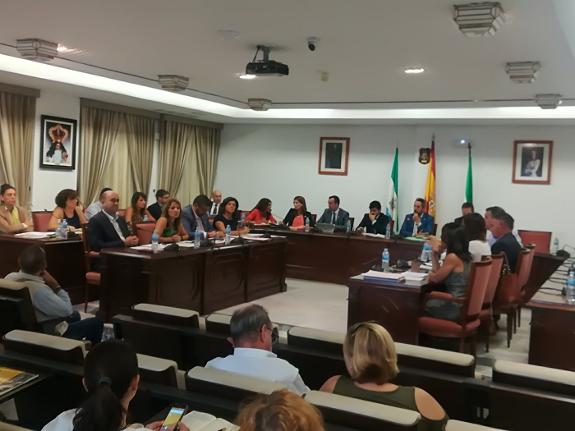Mijas mayor facing tough council sessions on budget and IBI collection
The ruling Ciudadanos and PSOE parties have agreed planned expenditure for 2018 at last but it still needs voting on
Ivan Gelibter
Viernes, 19 de enero 2018, 12:43
Mayor of Mijas, Juan Carlos Maldonado, of the Ciudadanos party, has started the year with two key financial decisions pending approval by councillors and still has some negotiating to do to ensure his plans win a majority vote in the chamber.
Despite delays in reaching agreement, centrist Ciudadanos and the socialist PSOE, the two parties that run the council in coalition, recently settled on a draft 2018 budget to take to the council for a vote.
Meanwhile the ruling parties have also agreed to propose handing over the in-house department that collects the municipal services tax (IBI) to the centralised unit of the Diputación provincial authority.
The move comes amid long-standing criticism that the current arrangement is ill-prepared and is losing the council millions a year in unclaimed taxes.
However Maldonado's position is complicated as Ciudadanos and PSOE together only hold 12 of the 25 seats on the council, one seat short of a majority, and need to negotiate.
Opposition parties refused this week to discuss how they would vote, saying the ruling group still hadn't shared their plans on both issues with them.
Votes on both the 2018 budget and the transfer of the IBI tax collection could take place next week.
In its draft budget, the council wants to increase its 2018 spending to 100 million euros from 98.3 million euros last year.
This rise is despite a reduction in IBI tax rates for homeowners.
The increase is possible as there are more new homes paying the tax now and an increase in new developments means more revenue from building licences too.
In terms of the unpaid IBI, an internal report recently said that the council urgently needed 41 more people in its tax collection department or to hand over responsibility for the staff to the provincial authority to enable taxes to be collected faster.
